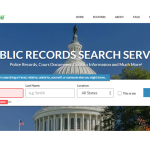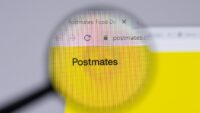Landing a worthwhile job without going through some sort of background screening process is unheard of in 2022. When it comes to hiring, Level 1 and Level 2 background checks are the go-to, whereas Level 3 and 4 are intended for more specific purposes.
Whether you’re required to go through a Level 2 screening or simply want to learn what this type of background check entails, you must be wondering, how far back does a Level 2 background check go?
In this post, we cover everything you need to know about Level 2 screenings, from how far back they can go and what information they can reveal to how they differ from Level 1 screenings.
How Far Back Do Level 2 Screenings Go?
Unfortunately, there isn’t a fixed answer to this question. This is because different states have different definitions of Level 2 background checks. Further, a Level 2 background check can reveal different sets of information based on the state in which it’s conducted. Read on to learn more.
What’s a Background Check?
Let’s first establish what the concept of background checking entails. In simple terms, a background check is an investigation of someone’s history, whether personal, educational, professional, or criminal.
There are many scenarios where a background check is needed, the most common of which is employment. Some jobs don’t require background checks, mainly in the customer service and food service industries. However, statistics show that around 96% of employers require background screening.
Why are background checks necessary nowadays? Because they help with candidate selection. If you’re running a financial institute, you wouldn’t want to hire someone with a history of fraud, would you? This is why Level 2 checks are conducted.
What Exactly Is a Level 2 Background Check?
A Level 2 background is a more in-depth version of a Level 1 background check (more on that shortly). This type of background check is fingerprint-based and covers national and state registries.
When it comes to how far back a Level 2 background check can go, it all boils down to state regulations. For example, in Texas, a background check can only go back 7 years unless the job you’re applying for comes with a salary of over $75,000.
It’s worth pointing out that the term “Level 2 background check” is only official in Florida. No other state uses that term officially, though all states carry out Level 2 investigations involving fingerprints.
Which States Implement the 7-Year Limit?
Some states can only go back as far as 7 years when it comes to background checks by the Fair Credit Reporting Act (FCRA).
These states are:
- Massachusetts
- New York
- California
- Washington
- Nevada
- Montana
- Texas
- Maryland
- Florida
However, salary thresholds can come into this equation. In some states, like Texas and California, if your salary is more than a certain number, a background check conducted on you can go back as far as 10 years.
Why is it that only a handful of states implement the 7-year limit? Well, because the above-listed states abide by federal law, whereas other states don’t.
In most cases, states that don’t abide by federal law—those that aren’t listed above—have a 10-year limit regarding how far back background checks can go.
Note: Convictions that haven’t been expunged can show up on a background check regardless of any timeline limit.
What Does a Level 2 Background Check Reveal?
Unlike name-based background checks, like a Level 1 background check, a fingerprint-based background check is more thorough in its results. After all, Level 2 screenings are there to help with hiring the best candidates for sensitive and high-responsibility jobs.
Level 2 background checks can reveal anything from felony convictions and misdemeanors to arrests (sometimes) and pending charges.
Suppose you’re applying for a position that requires a Level 2 investigation and a serious charge like abuse, manslaughter, kidnapping, trafficking, and so forth show up in the results. In that case, chances are your application will be rejected.
Level 2 background checks are concerned with the following:
Criminal records
Level 2 background checks are highly detailed when it comes to criminal records. They unveil all case records, dispositions, offense level, case dates, and sentencing information.
Past employment records
While not a priority, Level 2 background checks can unveil essential information about the subject’s employment history, including employment dates and periods.
Court records
If any court records have been sealed yet seen as relevant to the job you’re applying for, including juvenile detention and convictions, a Level 2 background check will most likely unveil them. That being said, Level 2 screenings cannot disclose expunged records.
Credentials verification
Level 2 background checks also reveal the subject’s education history by highlighting the academic institution they’ve attended. They also highlight the subject’s credentials so that it’s clear to employers whether or not the subject is a good fit for the role.
Do Level 2 Screenings Show Warrants and Arrests?
Warrants don’t show up on Level 2 background checks because they’re not considered part of a criminal record.
As far as arrests, however, the answer can vary. For example, some security background check services tend to highlight all arrests and charges that took place during the past 7-year period, whereas others choose to omit minor charges and arrests that didn’t lead to a conviction.
Arrests that didn’t lead to a conviction are often omitted so that the subject’s employment potential isn’t affected. Similarly, charges that aren’t that serious or that don’t pose a threat to a company’s reputation or its work environment are omitted.
How Are Level 1 and Level 2 Screenings Different?
The main difference between Level 1 and Level 2 background checks is that the former is less detailed and more basic than the latter.
Level 1 checks are opted for when it comes to low-responsibility positions, whereas Level 2 checks are opted for with more sensitive roles.
Another key difference between the two types is that Level 1 screenings are name-based, whereas Level 2 screenings are fingerprint-based.
Other Levels of Background Checks
It’s worth noting that there are more than two levels when it comes to background checks. In addition to Level 1 and 2, there are Level 3 and Level 4 screenings.
Level 3 background checks, like the Fraud Abuse Control Information System (FACIS) Level 3, are resorted to for certain professions. An example would be healthcare professionals.
Level 3 background checks are nationwide. In other words, they pull information from a host of state sources. If the subject is a healthcare professional, information can be pulled from sources like the Louisiana State Board of Dentistry, Alabama Board of Optometry, Colorado Board of Medicine, and the list goes on.
The final level of a background check is Level 4. Level 4 screenings are intended mainly for executives in the event of a thorough investigation. This type of screening, as you’d expect, is very comprehensive, highlighting things like the subject’s financial history, media image, and more.
What Is an FDLE Background Check?
The FDLE is the Florida Department of Law Enforcement, and the FDLE check is essentially the department’s equivalent of a criminal history check.
Just as there are Level 1 (name-based) and Level 2 (fingerprint-based) criminal history checks, an FDLE background check can be conducted using names or fingerprints.
A Level 1 background check will pull information from state records only, whereas a Level 2 background check will pull information from Florida’s computerized criminal history database as well as national records.
Can Level 2 Background Checks Be Inaccurate?
The possibility of a Level 2 background check being inaccurate is considerably low since it’s fingerprint-based. We all have unique fingerprints, so it’s highly unlikely that a Level 2 background check would link your own unique fingerprints to someone other than you.
Level 1 background checks, on the other hand, could be inaccurate because they rely on names and ages rather than fingerprints. They could be especially inaccurate if only the subject’s first and last names are used. This is why middle names are important in background checks.
So, what about misinformation? Can they be corrected?
Yes, if the results of your background check show incorrect information, you can contact the reporting agency to clear things up. Note, however, that this is a process that can take time, so your best bet is to get on it as soon as possible.
It’s improbable that a reporting agency would report false information about you on purpose. If you think that’s the case, though, you should know that there are strict laws set by the US Equal Employment Opportunity Commission that can help you deal with the situation.
Can You Run a Level 2 Background Check on Yourself?
If you’re looking to run a Level 2 background check on yourself to see what potential employers can find out about you, you absolutely can, and we highly recommend it before applying for a high-responsibility job.
To run a Level 2 background check on yourself, you first need to get fingerprinted at a licensed location. Some locations use live scan technology, whereas others are more traditional, using ink and paper.
After getting fingerprinted, all you have to do is submit an application through the state. You can also submit it through the FBI or any other federal entity.
On the contrary, you can’t run a Level 2 background check on someone without their permission. Level 2 background checks require the subject’s consent and fingerprints. Without both, they cannot be conducted.
How Do You Fail a Level 2 Background Check?
You can fail a Level 2 background check for a host of reasons. Note also that the results of a background check can vary based on the organization running it as well as the reason behind the screening.
Failing a Level 2 background check is most commonly linked to having a criminal offense on your record. The nature of the crime and its relation to the job for which you’re applying matter greatly.
For instance, if you have a sex offense on your record, it’s highly unlikely that you’ll be able to work around children. Similarly, if your record shows any fraud charges, working in a financial institution won’t be possible.
If you have some arrests on your record that didn’t lead to convictions, you don’t have to worry. They probably won’t show up on your background check. And even if they do, they shouldn’t be taken into consideration since they didn’t lead to a charge.
Felony and misdemeanor convictions, on the other hand, will surely show up on a Level 2 background check and can disqualify your application.
In Summary
It’s impossible to give a universal answer to how far a Level 2 screening can go. For example, in certain states, Level 2 background checks can go back as far as 7 years. In other states, they can go back as far as 10 years.
Remember, different states have different definitions of a Level 2 investigation. What’s more, a Level 2 investigation can unveil additional information based on the state in which it’s conducted.
Level 2 background checks are fingerprint-based, so they can reveal more about a subject and are less likely to be inaccurate compared to a Level 1 screening.
Level 2 background checks can reveal anything from criminal and past employment records to court records and credentials. They focus mainly on misdemeanor and felony convictions but might also show pending charges and arrests.
Related Posts
 How to Find Out Why Someone Was Arrested
How to Find Out Why Someone Was Arrested![The Best Background Check Softwares For Dating [Our Reviews and Comparison]](https://backgroundhawk.com/wp-content/uploads/2021/02/5-min-150x150.jpg) The Best Background Check Softwares For Dating [Our Reviews and Comparison]
The Best Background Check Softwares For Dating [Our Reviews and Comparison] Truescreen Background Check Review
Truescreen Background Check Review ADP Background Check Review
ADP Background Check Review Can a Juvenile Record Be Used Against You?
Can a Juvenile Record Be Used Against You? How Far Behind in Child Support Before a Warrant is Issued?
How Far Behind in Child Support Before a Warrant is Issued? Does a Background Check Include a Drug Test?
Does a Background Check Include a Drug Test? Instant Checkmate Reviews – User Ratings, Pricing, FAQ
Instant Checkmate Reviews – User Ratings, Pricing, FAQ How Long Does a Misdemeanour Stay on Your Record?
How Long Does a Misdemeanour Stay on Your Record? How Long Does Postmates Background Check Take?
How Long Does Postmates Background Check Take?

